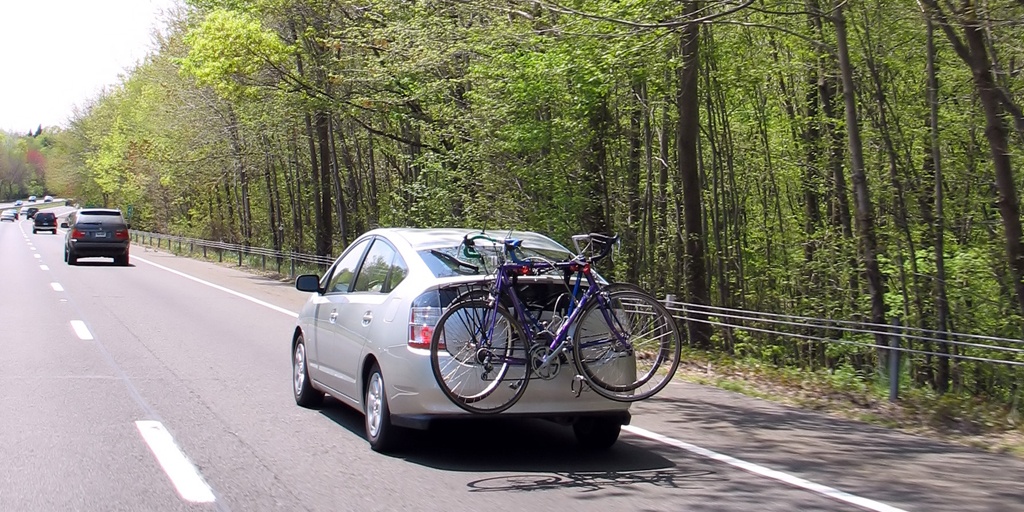Electric Vehicles: A Solution to Air Pollution?
Air pollution is a major environmental issue in cities around the world.

By Megan Crawford
February 5, 2019
Air pollution is a major environmental issue in cities around the world.
In October 2016, the firecrackers and fireworks lit for the Hindu festival of Diwali triggered toxic smog in Delhi, which left the city’s air pollution levels 42 times higher than the safe limit. In December 2016, Beijing was enveloped in smog for six days, forcing authorities to declare the highest level smog alert of 2016. In June 2017, Parisian Clotilde Nonnez filed a lawsuit against the French state—she alleged that the French government’s inaction on Paris’ severe air pollution led to her serious health problems.
A major cause of air pollution in the city is the high number of traditional motor vehicles. Such vehicles run on diesel or gasoline. As a result, they emit substances such as carbon monoxide, nitrogen oxides, hydrocarbons, and particulate matter. It is these substances that cause air pollution. Air pollution then leads to health problems like asthma, lung cancer, emphysema, heart disease, and death.
A growing number of governments are addressing air pollution by promoting the use of electric vehicles. Unlike traditional motor vehicles, electric vehicles do not run on diesel or gasoline. Electric vehicles, therefore, do not emit air pollutants. Furthermore, electric vehicles are very economical—they help motorists reduce fuel consumption.
China
Consequently, city governments are implementing various measures that aim to convince people to choose electric vehicles over traditional motor vehicles. Beijing, for instance, intends to build 435,000 electric vehicle charging stations between 2016 and 2020.
China has also imposed tight restrictions on new registrations for traditional cars and granted generous subsidies to motorists buying electric vehicles. China’s plan for 2018 is to require its automakers to ensure that electric vehicles constitute at least 8 percent of their vehicle output.
India
In 2017, the Indian government announced that only electric cars will be sold in India by 2030. “The idea is that by 2030, not a single petrol or diesel car should be sold in the country,” India’s power minister Piyush Goyal declared in April 2017. Nagpur helps the Indian government fulfill its vow by being the first Indian city to have an electric public transport system. This facility – a collaboration between taxi aggregator Ola, carmaker Mahindra, and the Indian government – started in May 2017.
The facility is composed of 200 electric vehicles, including autos, taxis, buses, and even e-rickshaws. Furthermore, Ola installed 50 charging points in four key areas in Nagpur. The Indian government believes that the facility is key to reducing India’s reliance on fossil fuel, as well as to bringing reliable transportation to the people. “It is heartening to see Indian companies such as Ola and Mahindra taking the government's vision forward and in building a strong ecosystem for sustainable mobility. I look forward to working with them to make the 2030 vision of reducing carbon emission a reality,” Transport Minister Nitin Gadkari said.
France
The Paris city government is investing in electric vehicles to address its serious air pollution problem. In January 2017, Paris Mayor Anne Hidalgo announced plans for a new electric tram- bus that will begin operating on September 2018. The electric tram-bus, called the “Olympic tramway” (in reference to the city’s bid for the 2024 Olympics), will run on two traffic lanes on the Quais Hauts on the Seine's Right Bank. Aside from tackling Paris’ air pollution, the “Olympic tramway” is also expected to reduce the city’s heavy traffic congestion.
The Importance of Consumer Support
Electric vehicles can be an effective solution to air pollution. But their potential to reduce air pollution in the city will not be fully realized if consumers will not support them. City governments must encourage people to use electric vehicles by making them affordable, easily accessible, and reliable. If city governments were to succeed in doing this, then electric vehicles will be able to help address air pollution in the city and contribute to the transition towards fully replacing fossil fuel-based vehicles in the future.
ADEC Innovations is a leading provider of ESG solutions, with expertise in delivering fully-integrated consulting, software and data management services. To know more about air quality management, contact ADEC Innovations today.
Related Articles
Renewable Energy, Air Quality
By Tiana Vernon on October 6, 2020
Air Quality | California | Clean Air Day
By Steve Paff on August 28, 2018
Air Quality | Sustainability | Energy | FCS | CSR
By Matthew McLaughlin on May 8, 2018
Renewable Energy | sustainable energy
Be a sustainability leader.
Our team supports you no matter where you are on your Sustainability Journey. Talk to us today to learn more.




